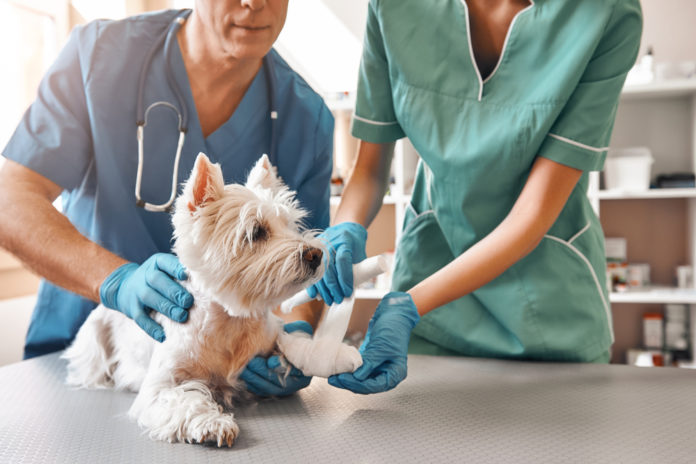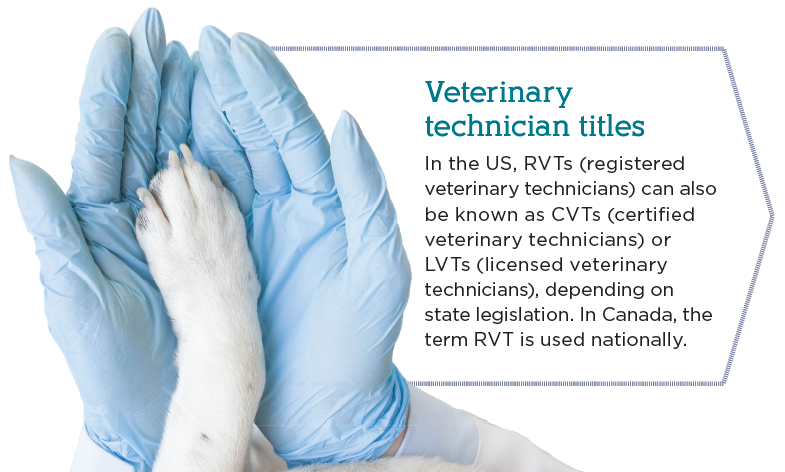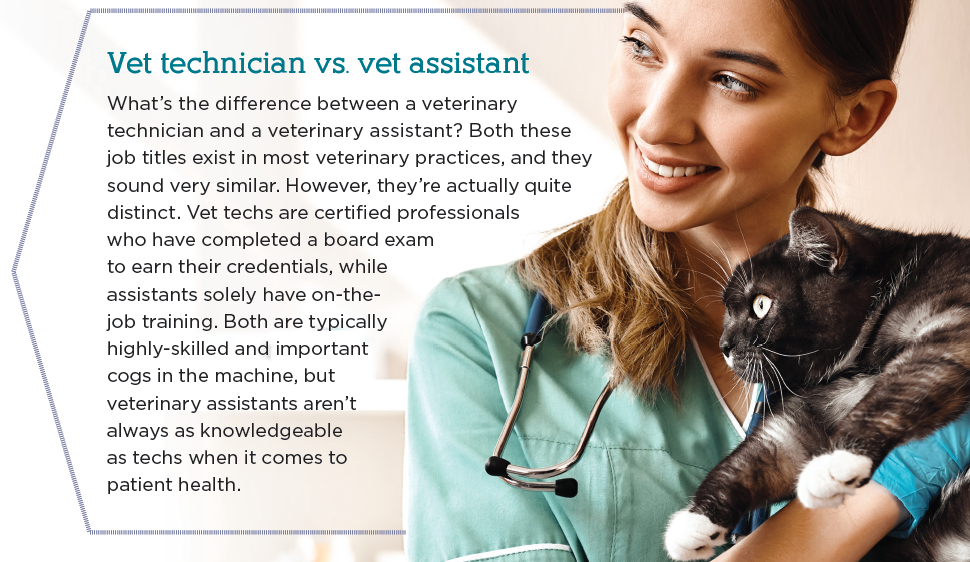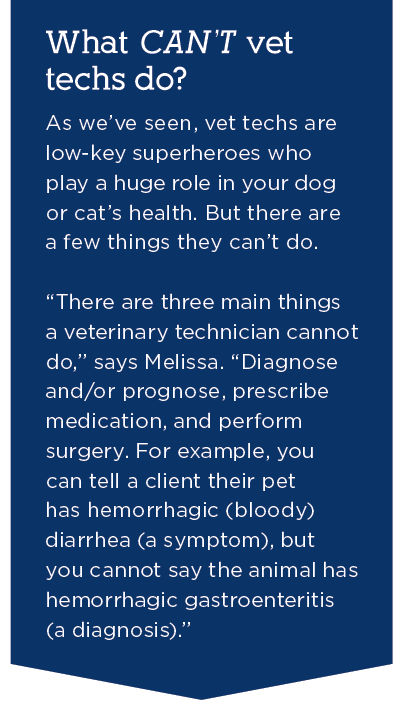Vet techs and what they do

You’ve probably met at least one veterinary technician at your vet’s office, but how much do you know about the role she plays in the clinic setting? Here’s how a vet tech can help you, and why they’re an invaluable member of your dog or cat’s healthcare team.
Think about the last time you took your dog or cat to the vet. Did you spend more time with the veterinarian, or with the nice lady holding a clipboard who took your animal’s temperature? Probably the latter! That lady – or gentleman – is a veterinary technician, and he or she is an important member of your dog or cat’s health care team. This article will look at the role vet techs play, and outline the numerous ways you can make the most of their skills next time you take Fluffy in for a checkup.
 Understanding the role of a veterinary technician
Understanding the role of a veterinary technician
A vet tech is many things – a liaison between you and your veterinarian, an administrative assistant, and an expert in delivering patient examinations, to name a few. But despite this wide skillset, many animal parents don’t realize just how much knowledge and support their vet techs have to offer.
To earn their credentials, RVTs require a degree in veterinary technology from a two- or four-year accredited program. “Much like human nursing, licensing requirements vary by state,” says former RVT Melissa Oglesbee, BS, AAS. “But usually, you have to have passed the VTNE (a national test that proves your veterinary knowledge) and the state veterinary medical board test (which tests your knowledge of things like state regulations).” Whether an RVT ends up working in a conventional clinic or alongside a holistic vet, the training is the same.
Also like human nurses, vet techs typically play a variety of different roles every day. From trimming animals’ nails to assisting veterinarians with surgical operations, their duties are numerous and the work never stops. “There is always a lot going on and a typical day is never the same,” says Christine Caplan, CVT. “You may start out assisting with a wellness appointment, doing a skin scrape to look for a fungal infection, drawing blood, calling patients that were in the day before for surgery, handling patients in the hospital for treatments, performing dental cleanings…the constant for a vet tech is ‘constant change’.”

How vet techs help dog and cat parents
Answer questions
Besides helping animal patients and veterinarians, vet techs are also there to help you – the client. If you have general questions about your dog or cat’s health, there’s no need to save them all for your vet. Often, the tech will be able to give you the answers you’re seeking, with the occasional exception (see sidebar below).
“A tech will typically handle a discharge after dental cleanings, surgery and other procedures to ensure the client knows what to do at home and what meds to give the pet,” says Christine. “Always ask your tech to help with questions such as: how do I administer that medication? What can I do after I bring my dog home from a procedure? What should I look for after vaccinations?”
 Help you understand your pet’s case
Help you understand your pet’s case
Vet techs are also great at explaining the information provided by your veterinarian in clearer terms. It’s easy to get overwhelmed during your dog or cat’s appointment and forget certain instructions or diagnoses, and the vet tech can help you sort it all out in your mind.
If you have to leave your dog or cat at the clinic for a procedure or to be monitored, chances are the veterinary technicians on duty will be responsible for feeding your animal, taking him out for bathroom breaks, changing bandages and catheters, taking x-rays, administering bloodwork, cleaning his ears and other tasks. Depending on the size of the practice, the vet techs might also perform certain procedures and administer vaccines. This makes your veterinary technician your most valuable resource upon your animal’s discharge, so don’t be afraid to have him or her explain what occurred during your dog or cat’s stay.
Give you a cost breakdown
Your appointment is over, and all your health-related questions have been answered. Now it’s time to pay! If you ask the vet a question about your bill, chances are he or she will refer you to the receptionist. However, the receptionist likely isn’t familiar enough with your animal’s case to help you understand the cost breakdown. Enter your vet tech! He or she can shed light on why certain procedures were required, and remind you why the supplements or medication that were prescribed are necessary for your dog or cat’s health.
The next time you’re at the veterinary clinic, be sure to use your vet tech as a resource. Make the most of your time by asking questions, and absorb the knowledge he or she has to offer – and be sure to say ‘thank you’ while you’re at it!



